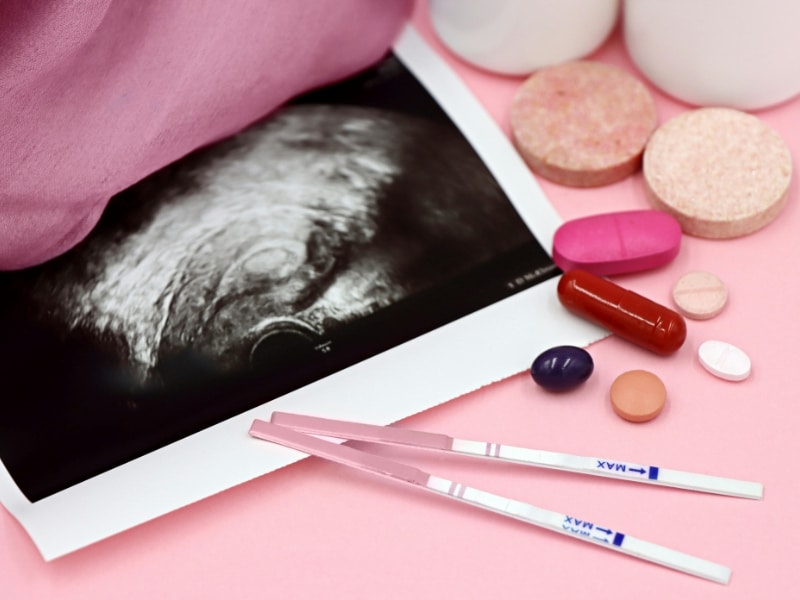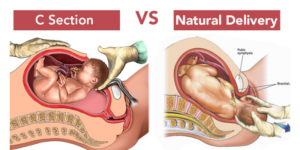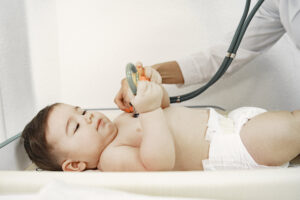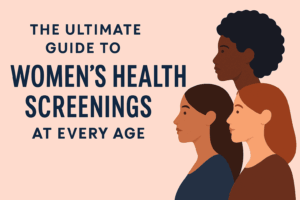The dream of becoming a mother is one of the most beautiful hopes in life. But even after trying several times to conceive, failure feels saddening and stressful. Here, many questions hit the mind—Why is this happening? Am I doing something wrong? Will I ever get pregnant?
Hold on! Don’t be stressed. You are not alone. Millions of women around the world are facing the same inconvenience. We know it’s difficult to accept this failure. This may happen due to the problem of infertility. Here, rather than stressing yourself, you must seek assistance from the best fertility centre who will guide you in the right direction.
In this article, we at ‘Advamed Hospital & Adbaby IVF Centre’ will explore the reasons why some women struggle to conceive, the signs to watch for, and the treatment options that can bring new possibilities. No matter where you are in your journey, remember—there is always a way forward. So, let’s get started!
What Is Infertility?
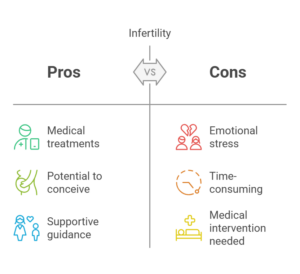
Infertility means not being able to get pregnant after trying for a long time. For most couples, doctors consider it infertility if they have been trying for a year without success. If a woman is over 35, this time is shortened to six months.
It doesn’t mean a woman can never have a baby, but it may take medical help. Infertility can happen when the body isn’t working the way it should for pregnancy. It can be stressful and emotional for couples who dream of having a child.
The good news is that many treatments and medical options are available to help. With the right guidance, many women facing infertility can still become mothers.
What Are the Causes of Infertility in Women?
Infertility in women can be caused by various medical, lifestyle, and environmental factors. Below are some of the most common female infertility reasons:
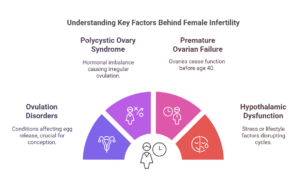
Ovulation Disorders
Ovulation disorders are one of the leading female infertility reasons. These conditions affect the release of eggs from the ovaries, making conception difficult.
- Polycystic Ovary Syndrome (PCOS): A hormonal imbalance that leads to irregular ovulation and difficulty conceiving.
- Premature Ovarian Failure (POF): When the ovaries stop working before the age of 40.
- Hypothalamic Dysfunction: Caused by stress, excessive exercise, or weight loss, leading to irregular menstrual cycles.
Blocked Fallopian Tubes
The fallopian tubes are essential for fertilization. If they are blocked, sperm cannot meet the egg.
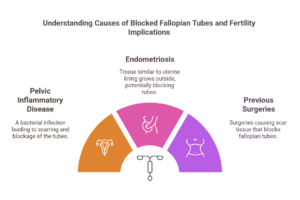
- Pelvic Inflammatory Disease (PID): A bacterial infection that can cause scarring in the fallopian tubes.
- Endometriosis: A condition where tissue similar to the uterine lining grows outside the uterus, potentially blocking the tubes.
- Previous Surgeries: Certain abdominal surgeries can cause scar tissue that blocks the tubes.
Uterine or Cervical Issues
Structural problems in the uterus or cervix can make pregnancy difficult.
- Fibroids and Polyps: Non-cancerous growths in the uterus that can interfere with implantation.
- Cervical Mucus Problems: Thick or hostile cervical mucus can prevent sperm from reaching the egg.
- Congenital Abnormalities: Some women are born with uterine defects that affect fertility.
Hormonal Imbalances
Hormones play a key role in the reproductive system. Imbalances can lead to irregular ovulation and menstrual cycles.
- Thyroid Disorders: Both hyperthyroidism and hypothyroidism can impact ovulation.
- Prolactin Disorders: High levels of prolactin (a hormone that stimulates milk production) can interfere with ovulation.
Common Signs You Might Be Facing Infertility
Recognizing the signs of infertility can help women seek medical help sooner. Common signs include: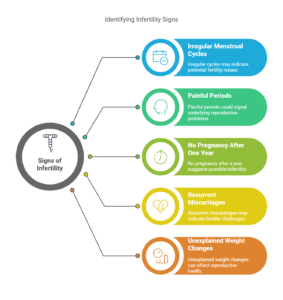
- Irregular or absent menstrual cycles
- Painful periods with heavy bleeding
- No pregnancy after trying for over a year
- Recurrent miscarriages
- Unexplained weight gain or loss
How to Test If a Woman Is Infertile
If you suspect infertility, doctors may recommend the following tests:
- Ovulation Testing: Measures hormone levels to check if ovulation is occurring.
- Ultrasound Scan: Detects problems in the ovaries, uterus, or fallopian tubes.
- Hysterosalpingography (HSG): An X-ray to check for blockages in the fallopian tubes.
- Blood Tests: To evaluate hormone levels and thyroid function.
Treatment Options for Female Infertility
Fortunately, there are many treatment options available for women struggling with infertility. Let’s have a look at: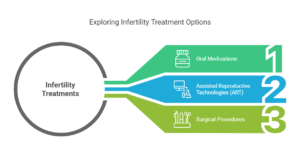
Oral Medications
There are several medications that help stimulate ovulation and improve fertility as follows:
- Clomiphene Citrate: Encourages ovulation in women with irregular cycles.
- Letrozole: Often used for women with PCOS to induce ovulation.
- Metformin: Helps regulate insulin levels in women with PCOS.
Assisted Reproductive Technologies (ART)
When medications alone are not effective, doctors may recommend assisted reproductive technologies.
- Intrauterine Insemination (IUI): Sperm is directly inserted into the uterus.
- In Vitro Fertilization (IVF): Eggs are fertilized outside the body and then implanted into the uterus.
- Intracytoplasmic Sperm Injection (ICSI): A single sperm is injected into an egg to improve chances of fertilization.
Surgical Procedures
In some cases, surgery is needed to correct structural issues.
- Laparoscopic Surgery: Removes fibroids, endometriosis, or scar tissue.
- Tubal Surgery: Helps clear blocked fallopian tubes.
Let’s Have a Look at the Drugs That Cause Infertility in Females
Certain medications can negatively impact fertility. Some of these include:
- Non-steroidal anti-inflammatory Drugs (NSAIDs): Long-term use can affect ovulation.
- Chemotherapy Drugs: Can cause ovarian failure and early menopause.
- Antidepressants: Some medications may disrupt hormone levels.
- Steroids: Prolonged use can interfere with ovulation.
FAQs: Clearing Up Common Doubts About Infertility
What stops women from conceiving in their 30’s?
As you get older, the number of eggs in your ovaries starts to decrease. The eggs that remain may have genetic issues, making it harder to get pregnant. Also, with age, you have a higher chance of developing health problems like fibroids or endometriosis, which can affect fertility.
What Are 5 Causes of Infertility?
To summarize, the five most common causes of female infertility are:
- Ovulation disorders (e.g., PCOS, thyroid disorders)
- Blocked fallopian tubes (e.g., PID, endometriosis)
- Uterine abnormalities (e.g., fibroids, congenital defects)
- Hormonal imbalances (e.g., thyroid dysfunction, high prolactin levels)
- Lifestyle factors (e.g., stress, obesity, smoking, excessive alcohol consumption)
What are the signs of infertility in teenage girls?
Although infertility is usually diagnosed in adulthood, some signs can appear in teenage girls, including:
- Irregular or absent periods
- Excessive hair growth (a sign of PCOS)
- Severe acne
- Underweight or overweight body condition affecting hormonal balance
Is 30 too late to have a baby?
Fertility does start to decline in your 30s, but many women still have healthy babies during this time. In fact, in 2023, most babies in the U.S. were born to mothers aged 30 to 34. If you don’t have any fertility issues, getting pregnant in your early 30s is definitely possible.
Lastly, infertility in women can be caused by various medical and lifestyle factors. Understanding the common infertility problems and recognizing the signs you can’t get pregnant can help women seek timely medical advice. Fortunately, with advancements in infertility treatment for females, many women can successfully conceive.
If you are experiencing difficulties, consult the experienced infertility doctors at ‘Advamed Hospital & Adbaby IVF Centre’ to explore the best treatment options for you.


